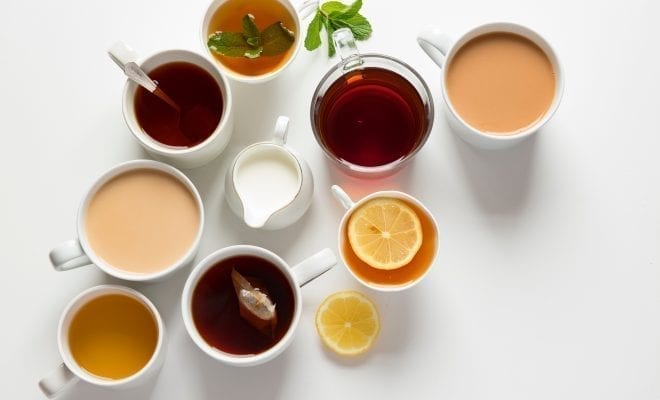
Lifestyle
Substitute Coffee With These Teas For A Caffeine Kick
If you are not the biggest fan of coffee, but still need a caffeine boost to kick-start your mornings, tea is a great alternative. All teas
White tea
With an average caffeine content of around 35mg, white tea is perfect for waking you up in the morning without giving you too much of the jitters. White tea is known to be one of the most delicate tea varieties because it is so minimally processed. Because

Green tea
One of the most recognized types of teas, green tea contains a little bit more caffeine at around 45 mg. Green tea can hail from many different parts of the world and processed using one of many different methods. So how the green tea you’re brewing tastes will depend on many factors. Some common traits used to describe its flavor profile include vegetal, grassy, and earthy. Green tea is packed with polyphenols and catechins, both of which can reduce your risk of cancer and aid your immune system in fighting off sickness.

Matcha tea
Matcha is a type of green tea that has been prepared by steaming, drying, and grinding leaves into a fine powder instead of shaped and rolled. Matcha is key to Japanese tea ceremonies and has become a very popular ingredient for cooking. Characterized by its striking green color, matcha has a fresh, earthy flavor, with caffeine levels ranging from 45 mg – 100mg due to the entire tea leaf being consumed.

Yerba mate
This naturally caffeinated herbal tea made from the dried leaves of the South America holly

Black tea
One of the more powerful types of tea, black tea typically contains about 45 mg-50mg of caffeine, about half the amount in a cup of coffee. In addition to a solid kick of caffeine, black tea has been found to have properties that can boost your immune system. Most black teas are strong enough to stand up to milk and sugar. But to truly enjoy the subtle flavor differences between the many varieties of black tea, try sipping them plain with no additives.

Chai Tea
Originating in India, chai tea refers to a huge variety of recipes, allowing the beverage to take on many different flavor directions depending on the ingredients used. Chai that’s heavy on the ginger and black peppercorns can leave a






0 comments